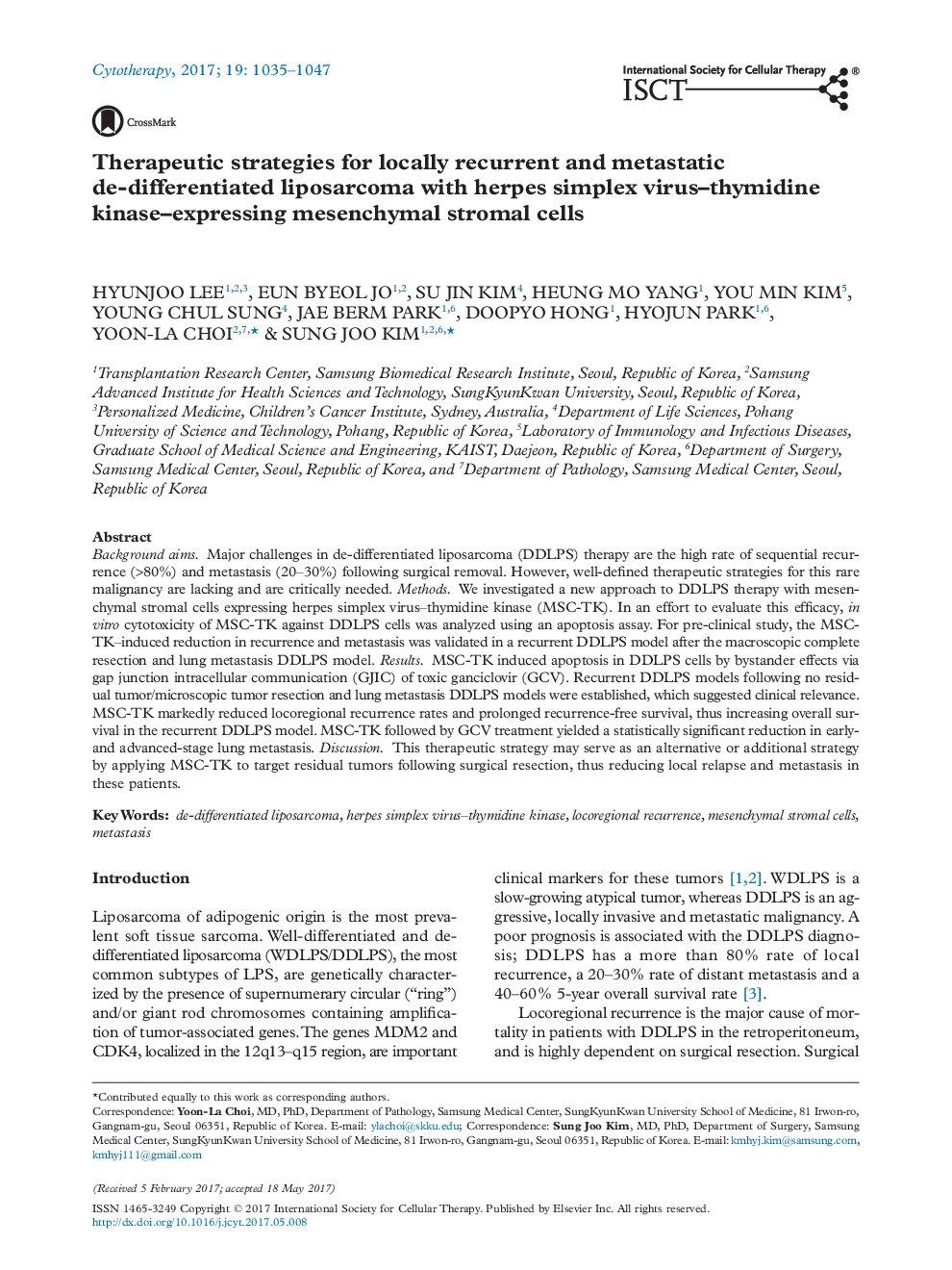| Article ID | Journal | Published Year | Pages | File Type |
|---|---|---|---|---|
| 5531316 | Cytotherapy | 2017 | 13 Pages |
Background aimsMajor challenges in de-differentiated liposarcoma (DDLPS) therapy are the high rate of sequential recurrence (>80%) and metastasis (20-30%) following surgical removal. However, well-defined therapeutic strategies for this rare malignancy are lacking and are critically needed.MethodsWe investigated a new approach to DDLPS therapy with mesenchymal stromal cells expressing herpes simplex virus-thymidine kinase (MSC-TK). In an effort to evaluate this efficacy, in vitro cytotoxicity of MSC-TK against DDLPS cells was analyzed using an apoptosis assay. For pre-clinical study, the MSC-TK-induced reduction in recurrence and metastasis was validated in a recurrent DDLPS model after the macroscopic complete resection and lung metastasis DDLPS model.ResultsMSC-TK induced apoptosis in DDLPS cells by bystander effects via gap junction intracellular communication (GJIC) of toxic ganciclovir (GCV). Recurrent DDLPS models following no residual tumor/microscopic tumor resection and lung metastasis DDLPS models were established, which suggested clinical relevance. MSC-TK markedly reduced locoregional recurrence rates and prolonged recurrence-free survival, thus increasing overall survival in the recurrent DDLPS model. MSC-TK followed by GCV treatment yielded a statistically significant reduction in early- and advanced-stage lung metastasis.DiscussionThis therapeutic strategy may serve as an alternative or additional strategy by applying MSC-TK to target residual tumors following surgical resection, thus reducing local relapse and metastasis in these patients.
